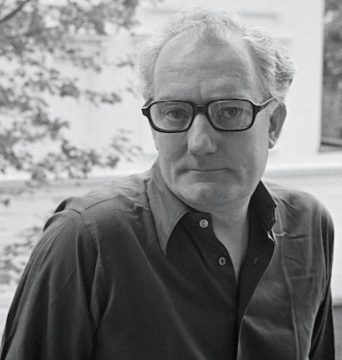John Maier in Prospect:
 When I met him, Bryan Magee was nearly 89, marvellously lucid, curious to hear about my time at Oxford, and paralysed from the waist down: in many ways the ideal interviewee. For a generation of young viewers, Magee’s legendary television series about philosophy were a baptism in the waters of the subject, and he the urbane and worldly gatekeeper to a realm of theoretic abstraction and grounded, vigorous discussion such as had never before been entered—a watershed moment in a primetime slot.
When I met him, Bryan Magee was nearly 89, marvellously lucid, curious to hear about my time at Oxford, and paralysed from the waist down: in many ways the ideal interviewee. For a generation of young viewers, Magee’s legendary television series about philosophy were a baptism in the waters of the subject, and he the urbane and worldly gatekeeper to a realm of theoretic abstraction and grounded, vigorous discussion such as had never before been entered—a watershed moment in a primetime slot.
“I wouldn’t rely on television for my introduction to anything,” Magee confided in me, blinking from behind glasses so thick they appeared to be double-glazed for warmth. “It seems to me a completely unimportant medium.” Bryan! I wept internally… It was like being told there was really only ever one Ronnie, or watching David Attenborough kick a pigeon. But—remembering what television is generally like—it was hard to disagree. Magee smiled grand-paternally back at me from where he sat, inside a small arms-reach fortress of books and papers, wielding a copy of Dumas the size of house-brick; the television screwed to the opposite wall was, I assumed, purely ornamental.
Bryan Magee, who died last month, had a career of intimidating sweep. He came up to Oxford in 1949, a particular post-war moment when the university’s unofficial monopoly in the production of trademark-ruling-elite seems to have been a little overstretched, as Magee found he had to take up several careers almost at once. He was watched by millions as a television journalist on This Week and began his 30-book literary career, making considerable contributions to scholarship on Wagner and Schopenhauer, all the while keeping up friendships with figures like Karl Popper and Bertrand Russell.
More here.
